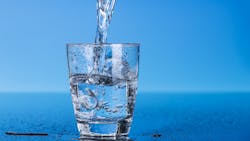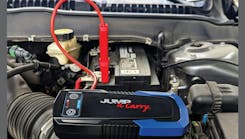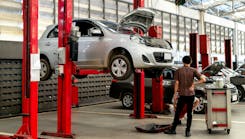5 tips to stay hydrated
While staying hydrated may seem like a simple task, lack of hydration can lead to heat illness, heat stroke, and even death. Staying hydrated is especially important for industrial laborers, many of whom work in hot conditions far away from air conditioning and refrigerators.
The Bureau of Labor Statistics has found that over 4,000 United States workers are seriously injured or die from heat stress every year. However, heat illness is 100 percent preventable with the right precautions, and staying properly hydrated is one of many ways we can stay safe in the heat.
But is drinking water still the best option to hydrate workers in hot conditions? Do electrolyte-replacing beverages have benefits that water doesn’t have? Should workers be drinking water before, during, and after the workday? Safety experts at Magid are here to help answer these questions.
1. Drink cool water rather than warm water
Drinking water while working in hot weather lowers heart rate, hydrates internal organs, and improves focus. But cool water has more benefits than warm water such as preventing body temperatures from increasing to dangerous levels. Additionally, warm water is typically unappealing to drink, making it less likely that employees will adequately hydrate during the day and putting them in danger of dehydration.
2. Give out cool beverages with additional nutritional and mineral benefits
Certain varieties of electrolyte-replacing beverages absorb into our bodies quicker than water. Some products, such as those provided by Sqwincher, have twice the potassium with less sodium and calories than common sports drinks, too. Not only are they available in liquid form, but they’re also available in powder packs and in freezer pops.
3. Choose electrolyte-replacing beverages after an hour of hard work in the heat over water
Sports drinks and other electrolyte-replacing beverages help replace salts or minerals we lose after an hour of exposure to high temperatures. But remember that cool, accessible water is still an essential hydration option. Electrolyte-replacing drinks should never be the only choice.
4. Provide hydrating options other than soda and energy drinks
Many sodas and energy drinks contain excessive amounts of sugar and caffeine. As a result of its diuretic properties, caffeine can even cause dehydration. While many workers love the taste of sugary energy drinks and sodas, cool water and electrolyte-replacing beverages are the superior options because they deliver all the benefits with no disadvantages.
5. Drink stations should be placed as close to an employee’s job site as possible
Employees will neglect their hydration needs if drink stations are far from work areas. On top of that, if workers realize the water available at the station is warm, hydration becomes even more unpalatable and unattractive to them. It’s vital to ensure cool liquids are accessible and available all day long. This may take more time and effort, but it might just be the difference between happy and productive workers and a detrimental safety incident.
Reprinted with permission from Magid.



